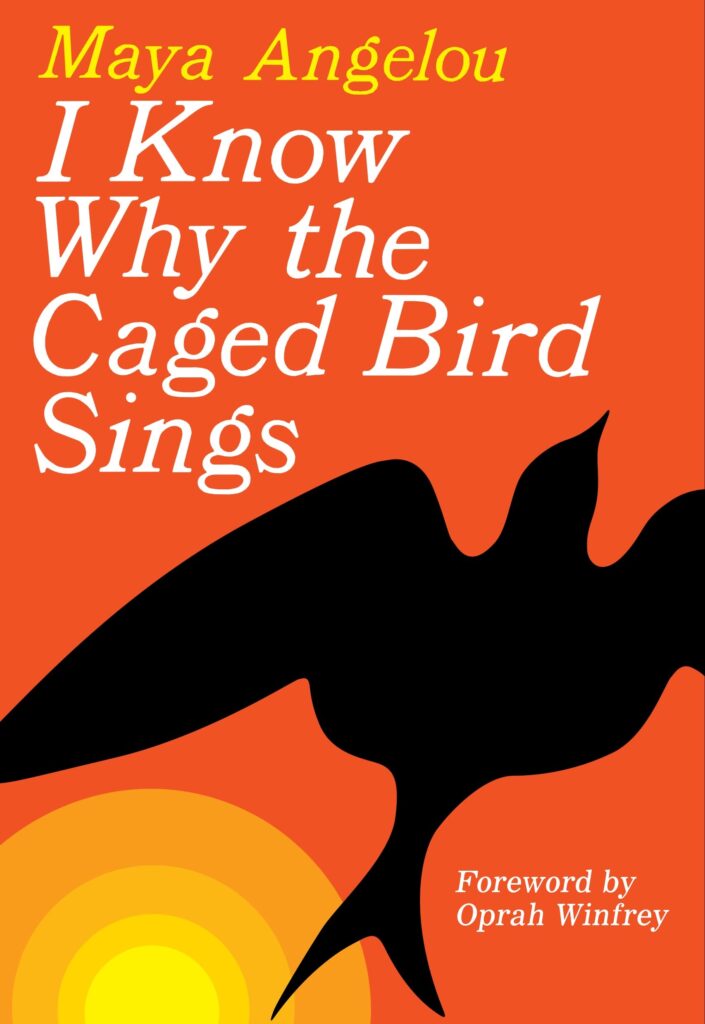
Today, we’re delving into a literary classic that’s been gracing bookshelves and sparking conversations for decades. The book in question? “I Know Why the Caged Bird Sings” by Maya Angelou.
Now, if you’re wondering when I first stumbled upon this gem, it was quite a few moons ago. I was just a fledgling book lover, still finding my wings, and this book absolutely left an indelible mark on me. There’s something about its raw honesty and lyrical prose that gets under your skin and stays with you, like the memory of a powerful song.
Book Summary of “I Know Why the Caged Bird Sings”
Now let’s hop into the heart of the matter. “I Know Why the Caged Bird Sings” is an autobiographical account of Maya Angelou‘s tumultuous and transformative early years. Born Marguerite Annie Johnson in 1928, Maya and her brother Bailey were sent to live with their grandmother in the small, racially segregated town of Stamps, Arkansas after their parents’ marriage fell apart.
The narrative beautifully captures the resilience of the human spirit in the face of adversity.
Young Marguerite, or Maya as she later becomes known, navigates through the harrowing experiences of racial prejudice, identity crises, and a traumatic sexual assault. Despite these trials, she remains steadfast, drawing strength from her love of literature and her indomitable spirit.
In her later teen years, she moves to San Francisco with her mother and experiences the challenges and opportunities of the city’s multicultural society. The book culminates with Maya’s transformation from a victim of racism with an inferiority complex into a self-possessed, dignified young woman capable of responding to prejudice.
Book Review of “I Know Why the Caged Bird Sings”
“I Know Why the Caged Bird Sings” is a profound and poignant narrative that has stood the test of time. Angelou’s writing is as compelling as it is poetic, and her life experiences act as a mirror reflecting societal issues that still hold relevance today.
The raw honesty in Angelou’s account strikes a chord with readers, as she recounts experiences that are at times deeply personal and painful. Yet, it is her resilience and transformative journey that leaves the most profound impact. Her story encourages readers to face their own trials with courage, and to find strength in their individuality.
Despite its heavy themes, the book remains an engrossing read, with Angelou’s lyrical prose and keen observations providing a riveting backdrop to her life story. It’s not just a book, but an experience, one that immerses you in the harsh realities of her world, yet leaves you inspired by her unwavering spirit and determination.
“I Know Why the Caged Bird Sings” Rating
My rating for this book? A resounding 9 out of 10. This book’s candid exploration of life, resilience, and identity make it a must-read. It’s not just a book, but a journey, one that may be difficult at times, but ultimately enlightening and rewarding.
Amazon Rating: 4.7 out of 5
Goodreads Rating: 4.28 out of 5
About the Author – Maya Angelou
Let’s take a moment to shine a spotlight on the woman behind the book, Maya Angelou. Born Marguerite Annie Johnson, she was an American author, poet, and civil rights activist. But she was so much more than her titles suggest – she was a force of nature, a woman of immense resilience and talent who used her voice to echo the experiences of African Americans and women alike.
With her words, she echoed the experiences of many, while also leaving a lasting imprint on American literature.
Angelou’s life was as multifaceted as her writing. She held a myriad of odd jobs in her early years, including being a fry cook, nightclub performer, and correspondent in Egypt and Ghana during the decolonization of Africa. She was also an active participant in the Civil Rights Movement, working alongside the likes of Martin Luther King Jr. and Malcolm X.
In 1982, she was named the first Reynolds Professor of American Studies at Wake Forest University in Winston-Salem, North Carolina.
Born in St. Louis, Missouri, in 1928, Maya’s early life was marked by tumultuous family dynamics and financial instability. Despite these early challenges, her grandmother, a wise and successful businesswoman during the Great Depression and World War II, became a beacon of stability in her life. This resilience and determination seem to have rubbed off on Maya, who went on to receive dozens of awards and more than 50 honorary degrees for her contributions to literature and activism.




